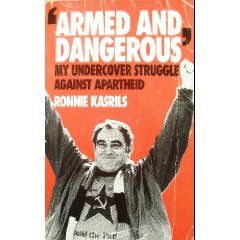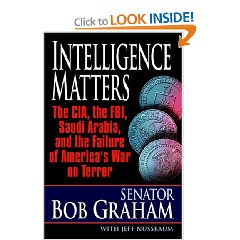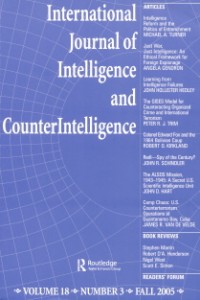We all know now that Al Qaeda was never operating in secret, and even today, is not operating in secret. We are simply incompetent at looking at open sources in foreign languages. IC Smith conveys this perfectly early on in his book, on page 7, when he repeats something he said that was published in the media, to wit “These guys were not superhuman, but they were playing in a system that was more inept than they were.” I share IC's anger over the FBI's failure to translate and exploit the many boxes of documents in Arabic that were captured in the Philippines and after the first World Trade Center attack, the botched car bombing.
If there is one word that summarizes this book's message, beyond incompetency, it is “corruption.” IC Smith tells it like it is when he discusses Congressional corruption, refusing to fix known problems in the Intelligence Community; Presidential corruption in abusing power and covering up those abuses; state-level corruption across Arkansas; intelligence community management corruption and malfeasance–some would even say treason, although IC avoids this word.
On a very practical level, IC Smith is probably the foremost authority to come forward and denounce the practice of having prosecuting attorneys manage investigations. The book has many examples of where trained investigators were not allowed to do their job, and prosecutors botched or blocked investigations that would have otherwise been timely and successful.
In passing, he skewers the staff at the FBI Academy, almost none of whom have actual street experience (nor do most FBI managers at the wood-paneled office level), and it is clear that while America has many dedicated Americans serving within the FBI, they are badly trained and badly led.
In addition to this book I recommend Michael Levine's Deep Cover: The Inside Story of How DEA Infighting, Incompetence and Subterfuge Lost Us the Biggest Battle of the Drug War (on the Drug Enforcement Agency), and Mark Riebling's Wedge: From Pearl Harbor to 9/11–How the Secret War between the FBI and CIA Has Endangered National Security (on the FBI-CIA wars that continue to this day), as well as George Allen's book None So Blind: A Personal Account of the Intelligence Failure in Vietnam (on the continuing ability of the White House–regardless of occupation–and the Intelligence Community–to lie to themselves, to Congress, and to the American people).
IC is a straight shooter. I'm glad he made it to retirement without being shot by a crook or stabbed in the back (fatally) by one of the suits in Washington that pretend to serve the people while serving only themselves.
Links added 20 Dec 07:
Legacy of Ashes: The History of the CIA
Web of Deceit: The History of Western Complicity in Iraq, from Churchill to Kennedy to George W. Bush
Dark Alliance: The CIA, the Contras, and the Crack Cocaine Explosion
Lost History: Contras, Cocaine, the Press & ‘Project Truth'
See No Evil: The True Story of a Ground Soldier in the CIA's War on Terrorism
On Intelligence: Spies and Secrecy in an Open World










